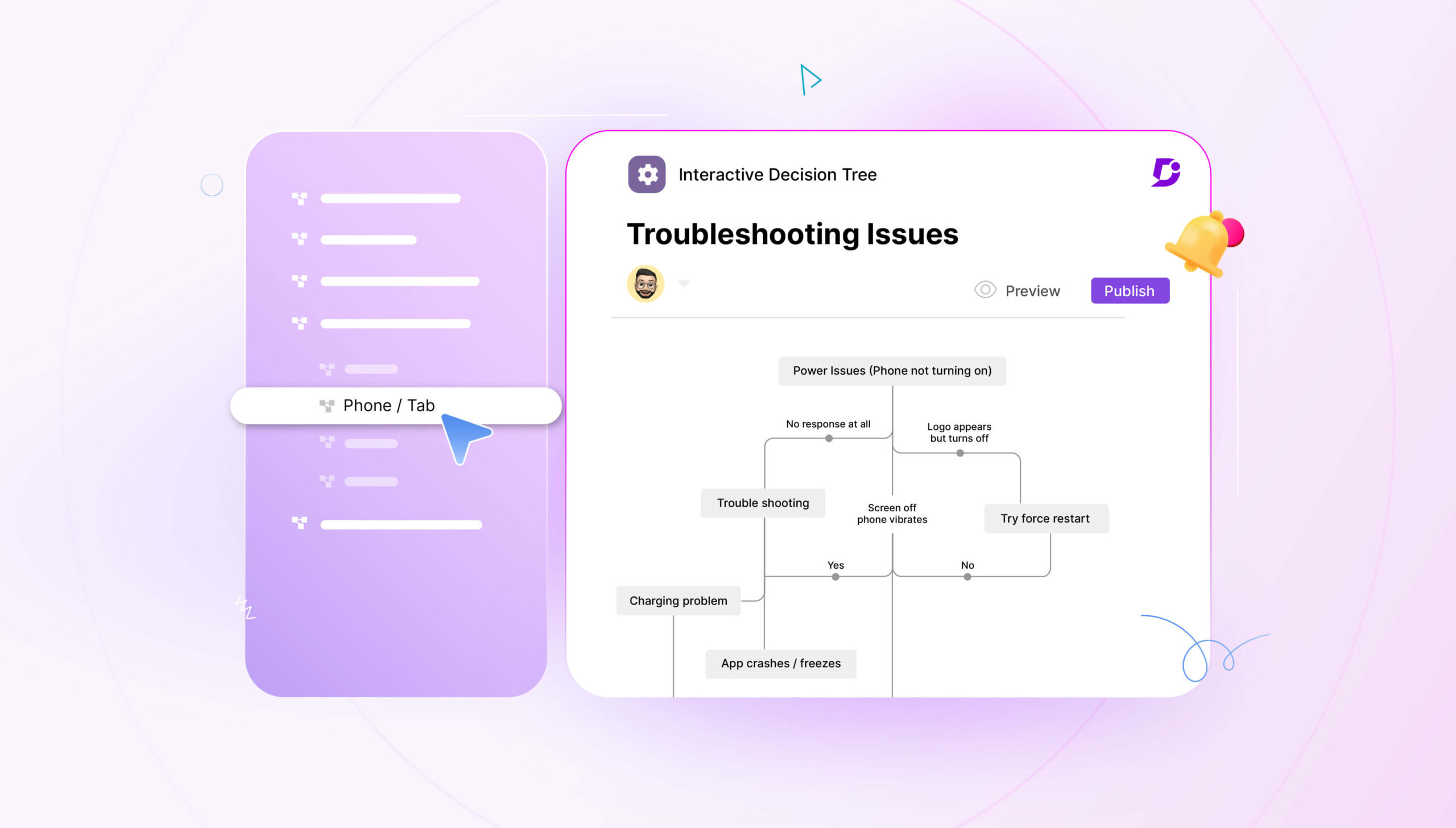A modern law firm heavily relies on the capture and dissemination of knowledge. They’re under pressure to provide value for their clients and prepare materials for cases that are time-sensitive. It’s essential for them to collaborate with their colleagues and share knowledge that could have a significant bearing on future cases.
Lawyers are working in a knowledge-intensive field and they need the right technologies to help them store and access knowledge. Without Knowledge Management, vital knowledge remains inside the lawyer’s heads and goes with them when they leave for another job.
Successful law firms know that their organizational knowledge is their intellectual capital and is what sets them apart from their competitors. This knowledge should be preserved and made accessible so lawyers have access to it in the future.
What is Legal Knowledge Management?
Legal Knowledge Management is the practice of capturing, storing and sharing knowledge within a law firm or other legal environment. Documents and other types of knowledge are saved in a system that can be searched and accessed by other members of the legal team. It might rely on a Knowledge Management System to properly index knowledge and make it available for anyone who is looking for it.
Legal Knowledge Management helps law firms attract new business by making their operations more streamlined and successful. By retaining the collective wisdom of their lawyers in a KM system, firms can offer more value for money to their clients and deliver the same service in less time.
Components in Legal Knowledge Management
People
The first and most important component of your legal Knowledge Management is the people within your organization who will be in charge of the strategy. You must assign department managers in designing the KM strategy and ensure that they take responsibility for its success. Knowledge Management is a continuous cycle of knowledge reuse that must be managed and maintained by stakeholders in your company.
It’s critical to involve a senior lawyer who should be in charge of Knowledge Management and content. They will have the best oversight of how the knowledge should be stored and structured because they deal with that knowledge in their day-to-day. Take time to plan the workflow for the review process and involve stakeholders to use the information.
Process
The second component of legal Knowledge Management is the processes you put in place within your organization to handle the wealth of knowledge. The first stage is capturing and collecting Information, which involves motivating lawyers and other staff to share their knowledge and capture it within a system.
Once the knowledge has been submitted, the next stage is organizing the information to make the collected information digestible to the users.
Making sure your employees have access to information is critical which may be as simple as sharing login details to the knowledge base. Your organization’s system should be secure and protected from unwanted intrusion.
Performance analysis means you keep track of how your knowledge base is performing and whether lawyers are benefiting from this resource. Use key metrics such as the number of views per page or the number of likes per page.
Culture
For legal Knowledge Management to be successful it must be embedded in the very fabric of the organization’s culture. Teams must strive to foster a knowledge-sharing culture that naturally gathers and transmits knowledge for the benefit of everyone in the business. No KM initiative will be successful if the right behaviors aren’t modeled by senior management so that everyone else in the firm knows what is expected of them.
Why Does Knowledge Management Matter for Law Firms?
Reuses Lawyers’ Collective Wisdom
The knowledge of each individual is relatively insignificant when compared to the knowledge of the whole. When lawyers harness their collective wisdom and make it available for everyone in the company, that makes everyone more productive and effective. It’s no longer just about the success of the individual but the performance of the entire business.
If you reuse knowledge suddenly you’re able to extract much more value from the same resource rather than it only benefiting one lawyer who happens to hold the knowledge.
Index Prior Work Product/ Precedents
Lawyers benefit from having access to their colleagues’ prior work which sets a precedent for all future legal cases. This helps make future work more substantive and provides a better standard of service to clients, who can rest assured that lawyers have access to all past rulings.
Lawyers can be more effective if they learn from past work and benefit from the expertise of others. Previous projects are preserved for posterity and they continue to add value to the business.
Improve Collaboration Within Business and Law Departments
When knowledge is shared this improves collaboration between all departments, who know what other business functions are working on. Business projects become more transparent and colleagues know who to ask for help. Ensuring colleagues have access to mission-critical knowledge means they can make better-informed decisions and avoid reinventing the wheel.
Information Governance
Information governance relates to the management of corporate information through the implementation of processes that regard information as a worthwhile business asset that should be preserved and reused. Information governance strives to make information available to employees when and where they need it while ensuring compliance and minimizing legal risks.
Knowledge Management helps you comply with information governance initiatives and manage your information properly.
Competitive Advantages
Conducting Knowledge Management programs within your law firm sets you apart from your competitors who are failing to manage their knowledge effectively. Your company will be able to move in a faster and more agile way, out-competing those who don’t have immediate access to important knowledge. Building a strong, knowledge-sharing culture also makes sure you retain staff who are loyal to a positive working environment, and they are unlikely to be lured away by your competitors.
Knowledge Management Barriers in Law Firms
There can be some barriers in place when it comes to adopting Knowledge Management initiatives in law firms. It’s not always the smooth adoption process you might hope it would be.
Organizational Structure and Culture
There can be some resistance to change among your personnel and a desire to keep doing things the way you have already done it. There may be a culture of hoarding knowledge and a spirit of competitiveness rather than collaboration.
It can be hard to embrace a new initiative, especially when that means your employees are taking time away from other mission-critical activities like casework, since Knowledge Management requires active participation in knowledge sharing. You need to work hard to get your employees on board by showing them the benefits of Knowledge Management.
Accurate Information Capture
Your Knowledge Management systems are only as good as the knowledge contained within it, and need employees to devote at least some of their time to capturing and storing valuable information.
Without employees uploading relevant information, your KM system won’t be a worthwhile resource that employees turn to for help. And if the knowledge gets out of date, this undermines the reliability of your system and employees may not trust it. Someone needs to be in charge of overseeing all your documentation and ensuring that it remains accurate.
Legal Knowledge Management Costs
If you are trying to implement a Knowledge Management program in your law firm you may encounter resistance over the cost of buying new tools and training employees to use them. Senior stakeholders may not believe there is room in the budget for a KM program and insist that you try to make do with the tools you already have.
The answer to these objections is to invest in a Knowledge Management tool with very little cost and learning curve, such as our own Document360 knowledge base platform, which we’ll go into in the next section.
Tools That Can Help You With Knowledge Management
Knowledge Base
A knowledge base is a centralized repository that houses all of your team’s most important information. It’s essentially a Content Management System that organizes your content into categories and provides a robust search function to help users find the most relevant information.
Knowledge base tools like Document360 can allow a limited group of contributors to upload and publish your company’s knowledge. It offers a modern User Interface that new users can learn in a matter of minutes so they can get started creating content straight away.
An intuitive knowledge management software to easily add your content and integrate it with any application. Give Document360 a try!
Get Started
Intranet
An intranet is a private social network for your company that allows your team members to communicate and collaborate internally. It’s a place for you to post updates and keep track of what everyone else in the company is doing.
Employee intranet tools such as Workplace by Facebook or Interact are useful in helping your employees actively share knowledge across the company.
Research directory
Research directories are knowledge repositories that store your firm’s knowledge in a comprehensive database. You can combine your company’s existing data to form a single source of searchable information that is available to everyone.
Tools such as Nudesic help your firm stay on top of your company’s knowledge and provide more transparency.
Document Management Systems
A document management system is a tool for companies to upload and share electronic files. You can store your data securely and access it from anywhere. You can manage documents throughout their lifecycle and ensure that everything is kept up to date.
Software like Microsoft Sharepoint Online offers capabilities for managing your documents including collaborative editing and document permissions.
Also Read: Microsoft SharePoint Vs Google Docs: What’s the Difference?
Data Mining and Knowledge Discovery tools
Data mining and knowledge discovery tools use machine learning, statistical techniques, and visualization techniques to uncover and portray knowledge in a way that is easy to understand for end-users.
Tools like Lexis+ and Fastcase have been explicitly designed for the legal profession to help you make sense of your data and gain more insights.
Contract and content management
Contract management tools allow you to sign and store documents electronically to speed up deals and contracts.
eBrevia is one such tool that is powered by AI so you can extract key provisions and data points from thousands of documents within minutes.
Getting Ready to Lead Knowledge Management in a Law Firm
Research on the Firm’s Knowledge Gap
The first step in getting ready to lead Knowledge Management in your law firm is to research your existing knowledge gap. Teams may be operating in information silos and failing to share much knowledge with one another. You need to know where you’re beginning before you can get ready to move forward with Knowledge Management and make it successful for your whole team. Make a list of all the areas where you think the firm could benefit from improved knowledge sharing.
Set up a Knowledge Management Team
You need to form a dedicated team in your organization to capture information, categorize, iterate, and publish. It has to be someone’s responsibility to be in charge of knowledge sharing and promoting the benefits to the wider organization. Identify knowledge champions who can lead the charge of Knowledge Management within your company, and make it part of their performance review.
Read more: Top 11 Knowledge Management Software 2022
Identify the Right Solution
Knowledge Management requires the right technology and systems to be in place before it can be effective. You can use a solution like a knowledge base to capture and share your knowledge with an internal team, for example, Document360 is ideal for law firms who want to improve their information-sharing. You can use a central team to manage and upload your knowledge while providing access to the knowledge base privately in order to keep your documents secure.
Schedule a demo with one of our experts to take a deeper dive into Document360
Book A Demo
Verify Metrics to Measure Success
Analyzing performance is an important part of ensuring your Knowledge Management program is a success. Tools like Document360 offer analytics that tells you how effectively your content is performing and the authors who are most prolific. You can keep track of failed searches and identify new content that needs to be created to fill the gap.
Also, check out our article on Knowledge Management Metrics
Keep Information Updated and Fresh
Once you’ve got your Knowledge Management system in place, you’ll want to regularly revisit it to check your content is still up-to-date. Knowledge evolves over time and a document that was useful six months ago may no longer serve your organization’s needs.
Conclusion
Knowledge Management is critical for law firms that want to retain a competitive edge and provide the highest standard of service for their clients. In order to be successful in the future, we need to learn from the past and ensure that valuable knowledge doesn’t leak away, never to return. Law is a knowledge-intensive business and lawyers can benefit from better collaboration with colleagues who will undoubtedly have much to contribute.
Also Read: Enterprise Knowledge Management: Importance, Methods & Tools
An intuitive knowledge management software to easily add your content and integrate it with any application. Give Document360 a try!
Get Started




 –
– 

